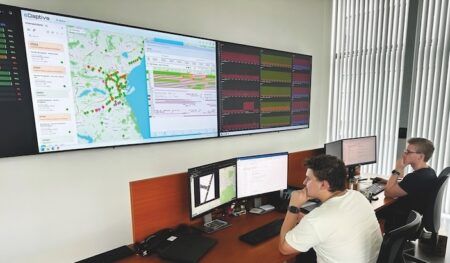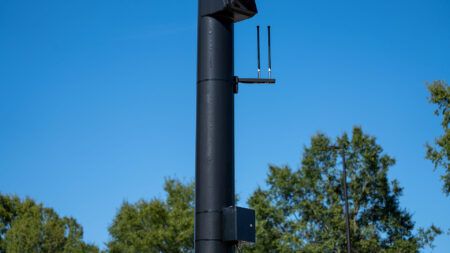The Canadian developer of intelligent traffic technology Miovision has announced that it is continuing in its mission to build the foundations for smart cities with the world’s most advanced traffic artificial intelligence (AI) using Nvidia GPUs (graphics processing units).
Earlier this year, the company launched Miovision Labs to be the research and testing ground for the next generation of traffic technology. Part of that work is helping cities use traffic data to make better decisions, and study how emerging technologies, such as computer vision, deep learning, big data analytics, and embedded device design, can play roles.
Miovision Labs explores new ways to make intersections more responsive to real-time traffic conditions using industry-leading Nvidia GPUs to quickly analyze huge volumes of data, and in doing so, bring their AI capabilities to a whole new level.
Miovision currently transforms video of vehicle, cyclist and pedestrian traffic into analytics via the cloud, where it is processed by the Nvidia GPUs, and converted to usable data to help city planners improve traffic flow. Eventually, AI will be built into devices to process data at the roadside. That information will then be fed back into the system to alert the right departments in real time. For example, a sensor might detect a double-parked car blocking a lane of traffic and alert traffic managers to adjust nearby traffic lights to improve vehicle flow, or they could also alert police in case of an emergency. The goal is to use Miovision’s advanced AI in real time so that traffic incidents can be addressed immediately. The company says responsive cities are smarter cities, and giving them the ability to react quickly helps them get on the right track to achieving their smart city visions.
“We are creating the world’s first neural network for traffic,” explained Kurtis McBride, Miovision’s CEO and co-founder. “In the near future, the combination of our technology will make it easier for cities to monitor traffic and address problems to help people get around more quickly and safely. Today, we’re helping cities with information and technology to build better transportation systems, but we’ve only scratched the surface. Through the research we’re doing at Miovision Labs, using Nvidia GPUs, with academic partners like the University of Waterloo, University of Toronto, and University of Sherbrooke, we’re building a neural network for transportation that will be the foundation for smart cities of tomorrow.”




